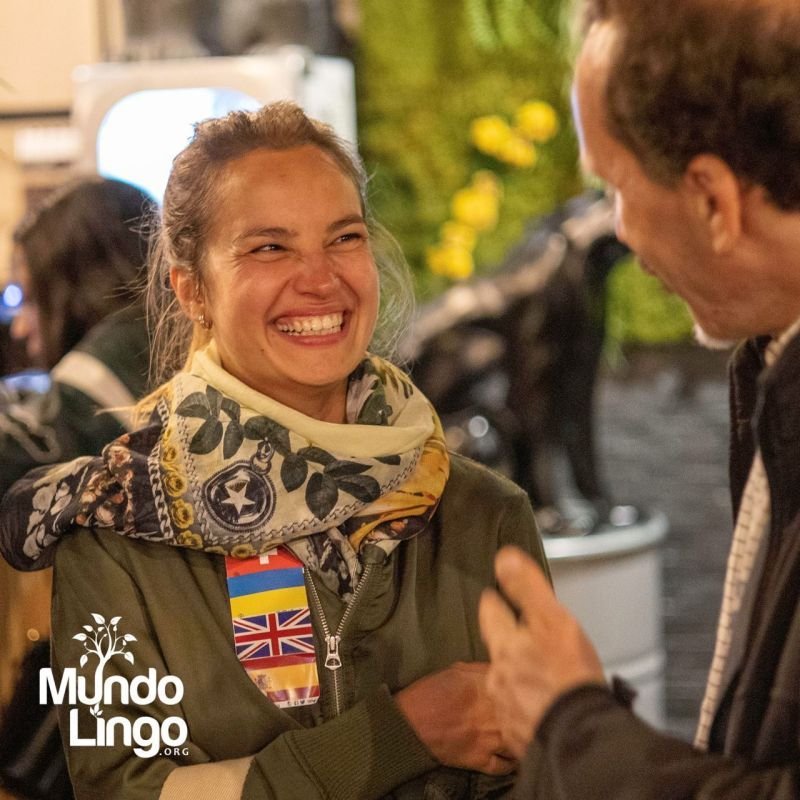Local Spanish Guide
When you first hear the local Spanish in Argentina or Uruguay, you may notice that it’s very different from what you are normally used to hearing. The pronouns, the conjugations, and the pronunciations may be different. We are excited to share these insights and recommendations to help you understand the ins and outs of the local Spanish of your new home city, while also further diving into the culture.
Where does it come from?
During the 16th and 17th centuries, Spanish settlers brought their language to the region, which eventually evolved into the distinct dialect spoken today. Several factors contributed to the formation of Argentine Spanish:
Indigenous influence: Contact with indigenous populations led to the incorporation of loanwords and linguistic features from native languages like Quechua and Mapudungun.
Immigration: Large-scale immigration from Europe, particularly Italy and Spain, further shaped the language by introducing new vocabulary and accents.
Regional variations: The vast geographic expanse of Argentina, coupled with diverse regional cultures, has resulted in subtle variations in pronunciation, vocabulary, and grammar.
Spanish Differences
Voseo
You’ll quickly encounter a distinction that sets the local Spanish apart from what you may have learned elsewhere: the use of the pronoun “vos” instead of “tú.”
To conjugate “vos” in the present tense:
Irregular verbs: ser → sos; ir → vas; haber → has
To conjugate “vos” in the affirmative command:
Irregular verb: ir → andá
Yeísmo
You will also find that words containing “ll” or “y” will be pronounced as “sh.” A few examples:
yo = sho (I)
lluvia = shuvia (rain)
pollo = posho (chicken)
playa = plasha (beach)
Local Slang
Called lunfardo, this region of South America has a unique set of slang vocabulary that incorporates words from Italian, French, English, and indigenous languages.
Argentina Slang
Bancar: to support; to wait
Birra: beer
Bocha: a lot
Boliche: nightclub
Bondi: public transport bus
Bárbaro: great
Canchero/copado: cool person
Chamuyero: sweet talker
Che: hey
Dale: sure; hurry up; are you kidding me?
Dar bola: to pay attention
Laburo: job
Manija: to be excited about something
Morfar: to eat
Posta: truth
Plata: money
Uruguay Slang
Uruguay shares a lot of slang with Argentina, however, while most expressions are used and understood, there is usually a more local alternative as well. There are also expressions that are unique to Uruguay and give Uruguayans away when visiting their Argentinian neighbors.
Barra: group of friends
Bo: similar to “che”, is a way to say “hey” and get someone’s attention.
Botija: little kid
Championes: tennis shoes, snickers
Changa: informal one-time job
Chiva: bike
Chela: beer
Chorro: thief
Comer oreja: to talk too much to someone, to the point where in annoys them
Estar al palo: to be very busy
Estar copado: to be happy or excited about something
Groncho/a: tacky
Guita: money
Mamarse: to get drunk
Rajá: ordering someone to leave quickly — either because you are kicking them out or because you encourage them to hurry.
Pila: a lot
Romperla: to do something perfectly
Salado: difficult, astounding, huge
Ta: I get it
Ta!: enough!
Ta?: Do you get it?
Vende humo: Someone who portrays a fake skill or promises things they can not deliver
Resources on how to Practice your Spanish
chatting with locals
Argentines and Uruguayans are very sociable and love to go and hang out for hours. Whether it’s for a coffee in the afternoon or drinks at night, locals find any possible excuse to celebrate and spend time with friends - or maybe with new people just like you!
Open up! Wherever you go, don’t stick with a large group of expat friends. If you go to a bar or to a boliche (nightclub), locals may feel intimidated to approach a large group. Some will feel shy about speaking in English, especially around foreigners, so maybe split into smaller groups, and invite them to come over and practice both Spanish and English.
Take the initiative. Most locals will not go out of their way to meet foreigners. You will likely have to approach them and start a conversation. Ask them about fútbol, mate, history, family, and traditions.
¡Vos podés! (You can do it!) Reduce your English as much as you can; locals will appreciate your effort to speak Spanish! It’s the best way to practice the language, and it’s a good excuse to talk to new people.
other resources
Gamified language learning apps such as Duolingo and Babbel.
Language Reactor to use with Netflix to have subtitles in Spanish and English at the same time.
WhatsApp audio transcribe feature that will write audio messages for you. Follow the instructions here to set it up.
YouTube: We recommend “Historias innecesarias” to learn cool stories about Argentina’s history and “Tiranos Temblad”, to learn about pop culture, history, and news from Uruguay.
Instagram: @thedustinluke and @adam.s.collins
Spanish courses with a local institution such as COINED or Academia Buenos Aires (in Buenos Aires) or Academia Uruguay (in Montevideo).
language meetups
We've compiled a list of language exchange gatherings that you can attend to hone your Spanish skills with native speakers. These popular events generally consist of conversations in both Spanish and English in a "speed dating" modality.
Spanglish Exchange: One of the most traditional exchanges in the city, Spanglish meets once a week in Palermo. There is a low cost to participate and registration can be done upon arrival.
Mundo Lingo: Their “intercambio de idiomas” events are not only restricted to the typical English <> Spanish, but also open to other languages. Each participant will be given country flag stickers indicating which language(s) they speak and want to practice. This group meets four times a week in different neighborhoods, free of charge.
Mate Club de Conversación: This is a structured event where you are seated with a group of two native English speakers and two native Spanish speakers. You will switch between languages and groups throughout the event. They meet a few days a week, and you have to sign up and pay to attend.
Films, Series, Books, podcasts
Films & Series from Argentina
Relatos Salvajes: An anthology of six short stories exploring violence and madness lurking beneath the surface of Argentine society.
Nueve Reinas: An Argentine thriller about two con-artists planning an elaborate heist.
El Secreto de sus Ojos: A legal drama exploring the emotional consequences of an unsolved rape and murder case. The second Argentine movie to win an Oscar.
Los Simuladores: A comedic television series following a group of experts who solve problems in unconventional ways.
La Historia Oficial: A historical drama about a woman who discovers the truth about her adopted daughter's past during the Argentine military dictatorship. The first Argentine movie to win an Oscar.
Argentina 1985: A historical drama depicting the trial of the leaders of the last Argentine military dictatorship.
Un Cuento Chino: A romantic comedy about an Argentine antique dealer who falls in love with a Chinese woman.
Films & Series from Uruguay
3 Million: In this joyous documentary about the passion of soccer, the iconic Uruguayan musician Jaime Roos and his son reunite to embark on a journey to the South African World Cup with the Uruguayan national soccer team.
Hit: A documentary that covers milestones in music and life in Uruguay.
Mundialito: A comedy film chronicling the adventures of a group of friends trying to organize a small-scale World Cup in their neighborhood.
Artigas La Redota: A historical film depicting the life of Uruguayan national hero José Gervasio Artigas.
Whisky: A psychological drama exploring the consequences of a lie that spirals out of control.
Several of these films can be found in Retina Latina, a free streaming website that features movies from all over Latin America.
Books & Podcasts
A Brief History of Argentina, Jonathan Brown
Dirty Secrets, Dirty War, David Cox
Buenos Aires y El Pais, Felix Luna
Rayuela, Julio Cortázar
El Aleph, Jorge Luis Borges
Hiding in Plain Sight: Black Women, the Law, and the Making of a White Argentine Republic, Erika Denise Edwards
Historia de la sensibilidad en el Uruguay, José Pedro Barrán
La locura uruguaya, Gustavo Ekroth
Manual de Historia del Uruguay, Benjamín Nahum
Mitos, tradiciones y leyendas de la Banda Oriental, Gonzalo Abella
Glorias uruguayas, Carlos M. Maeso
Cabezita negra, Piba Afroqom

















